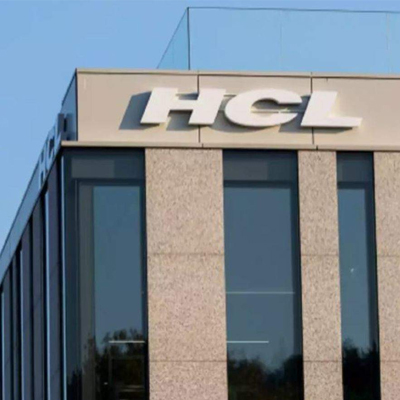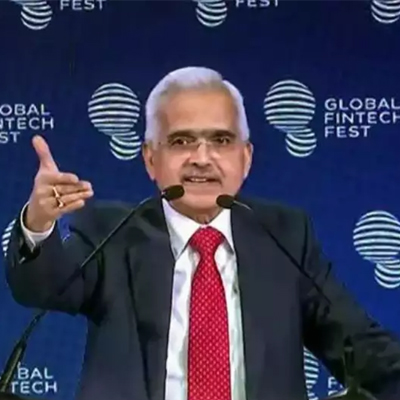From Diagnosis to Management: The AI Revolution in Healthcare
1.jpg)
Brijendra Singh, Vertical Head and Sr. Vice president at Lupin Global
The integration of Artificial Intelligence (AI) into healthcare is revolutionising the industry, from diagnosis to management. This transformation promises a future where medical care is faster, more accurate, and more accessible. It addresses pressing challenges such as the scarcity of medical professionals, rising healthcare costs, and the need for personalised treatment plans.
Current Situation
India is experiencing a remarkable surge in AI-driven healthcare applications, spanning from diagnosis to treatment and beyond. Recent statistics project that the Indian healthcare AI market will soar to US$1.6 billion by 2025, demonstrating a staggering Compound Annual Growth Rate (CAGR) of 40.5% from 2020 to 2025. (source)
Enhancing Diagnostic Accuracy
AI algorithms, particularly those utilising machine learning and deep learning, are significantly augmenting diagnostic accuracy. These systems can scrutinise medical images—such as X-rays, MRIs, and CT scans—with a precision often surpassing that of human radiologists. For instance, AI has been employed to detect early signs of conditions like cancer, diabetic retinopathy, and cardiovascular diseases, facilitating earlier interventions and improving patient outcomes.
Streamlining Clinical Workflows
Beyond diagnostics, AI is revolutionising clinical workflows. Natural language processing (NLP) enables the efficient extraction of pertinent information from electronic health records (EHRs), reducing the administrative burden on healthcare providers and allowing them to focus more on patient care. AI-driven tools can also schedule appointments, manage patient flow, and predict patient no-shows, optimising the use of resources and enhancing patient satisfaction.
Personalised Treatment Plans
AI’s capability to analyse vast amounts of data allows for the creation of highly personalised treatment plans. By considering an individual’s genetic makeup, lifestyle, and environmental factors, AI can help tailor therapies that are most likely to be effective for a specific patient. This precision medicine approach is particularly transformative in the treatment of complex diseases such as cancer, where personalised regimens can significantly improve survival rates and reduce side effects.
Predictive Analytics for Proactive Care
Leveraging predictive analytics through Artificial Intelligence (AI) for early detection is an invaluable asset for targeted public health interventions, particularly in settings with limited healthcare capacity and delayed disease detection capabilities outside urban centres. AI-enabled tools present significant opportunities to bridge these disparities and advance towards AI maturity in India's healthcare market.
Expanding AI Applications in Healthcare
Similar advancements are taking place in oncology. Tata Medical Center and the Indian Institute of Technology recently launched India’s first de-identified cancer image bank: the Comprehensive Archive of Imaging. AI-based tools can leverage high-quality de-identified images to train machine learning models to detect biomarkers, thereby improving outcomes in cancer research.
In the realm of cardiovascular healthcare, a significant and unique challenge for India, Microsoft’s AI Network for Healthcare and Apollo Hospitals are collaborating to develop a machine learning model aimed at better-predicting heart attack risk. By utilising clinical and lab data from over 400,000 patients, the AI solution can identify novel risk factors and provide a heart risk score to patients without requiring a detailed health check-up, facilitating early disease detection and intervention.
“Embracing the transformative power of AI in healthcare is about securing a healthier, more prosperous future for all. By scaling up AI integration responsibly, with a focus on meaningful human control and informed consent, we pave the way towards not just medical innovation, but economic prosperity and improved well-being for generations to come."
The Growth Potential of AI in Healthcare
AI expenditure in India surged by over 109% in 2018, reaching $665 million, and is projected to escalate to $11.78 billion by 2025, potentially contributing $1 trillion to India’s economy by 2035. (source)
NITI Aayog, a prominent public policy think-tank associated with the Indian government, has been exploring the application of AI in primary care for the early detection of diabetes complications. Additionally, it is currently validating the use of AI as a screening tool in eye care by comparing its diagnostic accuracy with that of retina specialists. By integrating AI capabilities with portable screening devices, such as 3Nethra, India can significantly expand its capacity for eye screenings and early detection, thereby enhancing accessibility to healthcare services in remote areas countrywide.
Responsible AI Integration in Healthcare
Realising the economic potential of AI in healthcare requires vigilant risk management to safeguard patient well-being. Fragmented data availability poses risks, potentially leading to errors in diagnosis and treatment. Data accessibility must align with informed patient consent, ensuring awareness of AI model usage and treatment decision factors, which is crucial in India's context of limited physician-patient interaction. Balancing automation with human oversight in disease detection is vital to prevent overreliance on AI tools and maintain investments in healthcare infrastructure. AI should augment, not replace, healthcare decision-making, with mechanisms for physician feedback and continuous improvement loops to mitigate risks. Integration of AI into healthcare must align with the goal of universal health coverage, ensuring it complements increased healthcare spending and benefits rural and peripheral populations.
Government Initiatives and Partnerships
The government must foster public-private partnerships across the healthcare industry to facilitate collaboration between academia, government, industry, NGOs, and patient advocacy organisations. Scaling governance and regulatory mechanisms is essential to provide appropriate oversight for privacy, fairness, and transparency.
Principles of AI Integration
NITI Aayog’s National Strategy for AI prioritises principles of privacy, ethics, security, fairness, transparency, and accountability, aligning with the rights afforded by the Indian Constitution. As a founding member of the Global Partnership on AI alliance, India advocates a measured approach to AI integration, emphasising ethical and responsible standards. These principles must guide practical implementation as the technology scales.
Human-Centric Design
How AI systems are integrated is crucial. Human-in-the-loop and human-centric designs empower healthcare staff to comprehend how decisions are made and incorporate this knowledge into treatment protocols, minimising risks and ensuring patient safety.
Workforce and Data Literacy Expansion
Investments in expanding the healthcare workforce and enhancing data literacy are imperative. An informed workforce capable of leveraging AI in healthcare will drive innovation and ensure effective implementation. India's measured adoption of AI technology can bridge rural-urban disparities, positioning the country as a leader among emerging markets in achieving the Sustainable Development Goals while leaving no one behind.
Final Thoughts
Integrating AI in Healthcare represents a profound shift with transformative potential across diagnosis, treatment, and patient care. India is experiencing a notable surge in AI-driven healthcare applications, reflecting a growing recognition of its capabilities. However, this advancement must be accompanied by a steadfast commitment to responsible integration, prioritising ethics, transparency, and equitable access. Through collaborative efforts, capacity building, and robust governance, India can harness the transformative power of AI to bridge disparities, enhance healthcare accessibility, and propel the nation towards a future where quality healthcare is accessible to all.
The Journey into Industry
Mr. Brijendra Singh is the Vertical Head and Vice President of Sales and Marketing for the, Diabetes care , Onrise, Inspire Metabolic, Metacare, Nepal business,Synox and OphthalmologyTeams at Lupin Limited, a multinational an innovation led transnational pharmaceutical company. With over four decades of expertise in the pharmaceutical industry, Mr. Singh has played a pivotal role in driving the success of Lupin's Diabetes and Cardiology and Ophthalmology portfolio. Under his leadership, Lupin's Diabetes Business has attained the prestigious no 3 rank in Sales, reflecting his strategic acumen and commitment to excellence.
Mr Singh's journey in the pharmaceutical domain began as a Medical Sales Representative at Montari Laboratories, a Ranbaxy Ltd. subsidiary, where he laid the foundation for his illustrious career. He swiftly ascended the ranks, holding key positions such as Regional Sales Manager, National Sales Manager, and Deputy General Manager of Sales across various divisions. Notably, his tenure as National Sales Manager saw the launch and remarkable growth of Lupin's Diabetes Business, now a frontrunner in the Indian pharmaceutical market aiming to become 2nd big player in the field of Diabetes and Metabolic disease solution provider in therapy and Patient support programs.
With a Master's degree in Zoology from Dr. B. R. Ambedkar University, Agra, Mr. Singh's expertise extends beyond sales and marketing to encompass strategic planning, product launch, business development, and exemplary leadership in product marketing and business management. Mr. Brijendra Singh’s unwavering commitment to excellence and transformative impact continues to shape Lupin's trajectory and drive innovation in the pharmaceutical landscape.
.jpg)
.jpg)
.jpg)
.jpg)



